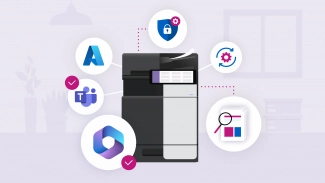adt-testreport-onepackage
NAME
adt-testreport-onepackage - choose one package and test it with adt-run
SYNOPSYS
adt-testreport-onepackage
[variable=value|settings-file]...
DESCRIPTION
adt-testreport-onepackage
is a rather ad-hoc script which chooses a package to test, calls
adt-run, and reports the results. a-t-o has the following
functionality:
a-t-o downloads the Sources file, chooses a package to test (see
below), downloads its source, invokes adt-run, writes a report
describing the outcome, and emails the report to some appropriate
address.
WARNING - it is essential to reconfigure this program before
use, as the supplied examples will send emails to people who
will become very upset with you!
CONFIGURATION
Command-line arguments containing = are interpreted by a-t-o
with eval; other arguments are sourced using .,
in each case interpreted as bash script. Configuration fragment
authors should bear in mind that a-t-o uses set -e.
Various variables can be set for useful effect. A selection of the
most usual ones, with default values, can be seen at the top of the
a-t-o script itself. Certain others are mentioned in this manpage.
There is no exhaustive list and no documentation of the semantics.
PACKAGE SELECTION
a-t-o maintains a record of when each package was last tested, what
version was tested, and whether the package had any tests.
This record is used to choose which package should be tested next:
packages which have changed since the last test are preferred, as are
packages which didn't lack tests last time they were examined.
If the configuration sets pkg to a package name (for example by
passing pkg=package-name), this overrides
a-t-o's package selection algorithm.
REPORTING
If interactive is set to true (the default), a-t-o will
not redirect the output from adt-run and will not email anyone,
although the start of the email which would have been sent is sent to
stdout. If interactive is false, a-t-o sends an email to
its administrator (if a-t-o considers that the testing machinery is
broken, or if maintainer_email_override is set), or otherwise to
the package maintainer.
No email is sent if there were no tests, or all the tests skipped or
passed.
The emailed report contains a summary of the outcome of the tests, and
the output from adt-run. Additionally, if an email is sent, the build
trees, test results, and so forth, will be uploaded to the location
specified with the dest* options (see the
onepackage-config example configuration file).
Some vague progress information is printed to a-t-o's stdout.
FILES
The tmp=tmp and var=var configuration
variables name two directories which must belong solely to this
instance of a-t-o.
tmp will be erased by a-t-o at startup and then used for
temporary files. It is not cleaned up afterwards; it is assumed that
the next run of a-t-o will do that.
var is used to record the state, including the information about
each package used for package selection. var/log contains
a one-line record of each test run and may need to be rotated.
tmp and var default to tmp and var in a-t-o's
starting directory.
EXIT STATUS
0 a package was apparently tested
20 adt-run reported an unexpected failure
other other unexpected failures including bad usage, disk full, etc. When a-t-o is run in a loop, the loop should stop pending administrator intervention if a-t-o exits nonzero.
20 adt-run reported an unexpected failure
other other unexpected failures including bad usage, disk full, etc. When a-t-o is run in a loop, the loop should stop pending administrator intervention if a-t-o exits nonzero.
SEE ALSO
adt-run(1).
BUGS
It is essential not to use the example configuration!
This configuration is likely to send inappropriate emails!
There is no documentation for the variable settings, and no error
handling for detecting attempts to set incorrectly named variables.
The tuning parameters for the package selection algorithm cannot be
adjusted. This algorithm is not hugely sophisticated. There should
be a facility for explicitly requesting retests (other than setting
pkg); there should be some kind of manual prioritisation queue.
a-t-o cannot choose a distrorelease (eg, dapper, feisty, etch, sid) or
suite (eg main, non-free, universe); the caller must do that.
Configuration by the use of bash fragments is rather unsophisticated.
The script lacks flexibility in many respects; many additional
configuration settings and hooks are needed.
AUTHORS AND COPYRIGHT
This manpage is part of autopkgtest, a tool for testing Debian binary
packages. autopkgtest is Copyright (C) 2006-2007 Canonical Ltd and
others.
See /usr/share/doc/autopkgtest/CREDITS for the list of
contributors and full copying conditions.





















